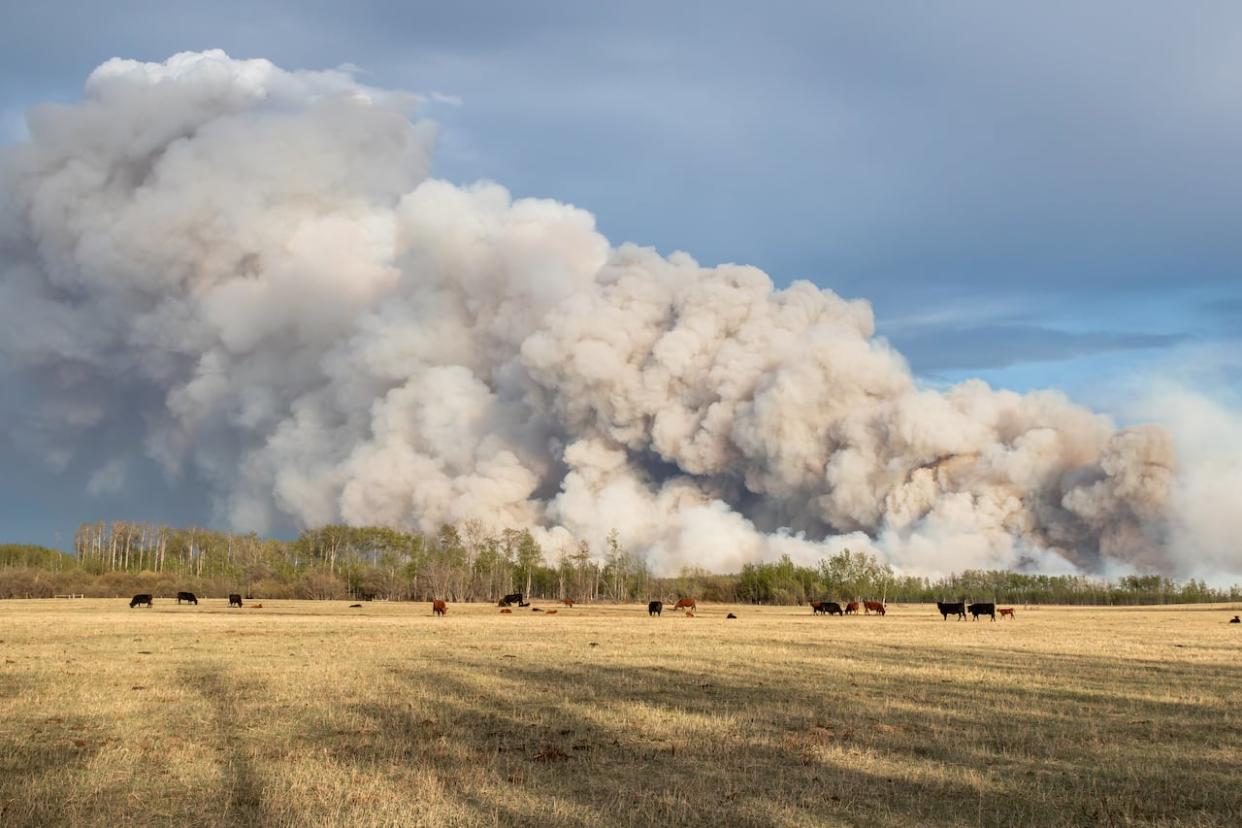Smoke from wildfires in B.C., Alberta prompts air quality statements in Sask.

Smoke travelling into Saskatchewan from wildfires in British Columbia and Alberta has prompted special air quality statements for parts of the province.
Parts of northern and central Saskatchewan, including Saskatoon, Prince Albert, La Ronge and Meadow Lake, were under air quality statements from Environment and Climate Change Canada as of noon Saturday.
Environment Canada said the plume of wildfire smoke is spreading southwards throughout Saskatchewan Saturday.
The band of smoke will bring four to eight hours of poor air quality and reduced visibility as it moves through the province, according to the national weather agency.
"Fortunately, it's not going to be a particularly long lived event," Brad Vrolijk, an Environment Canada lead forecaster, said on Saturday.
"For areas in central Saskatchewan, improvement will happen through the afternoon and into the evening," he said.
"For areas towards the southern parts of the province, it'll probably deteriorate later in the day and then improve overnight, and we should see better conditions across the region tomorrow."
Environment Canada recommends reducing exposure to the wildfire smoke if you can, since it can be harmful to anyone's health, even at low concentration.
People with lung or heart diseases, older adults, children, pregnant people and those who work outdoors are at higher risk of being impacted by the wildfire smoke, the air quality statement warns.
Vrolijk said these special air quality statements will likely become more common in the coming weeks and months in Saskatchewan, as the forest fire season in Western Canada intensifies.
"It's going to be moving into that time now where we'll probably see waves of smoke move through, with various systems coming across the Prairies," Vrolijk said.
"It's unlikely that these fires are going to go anywhere anytime soon."

 Yahoo News
Yahoo News 
